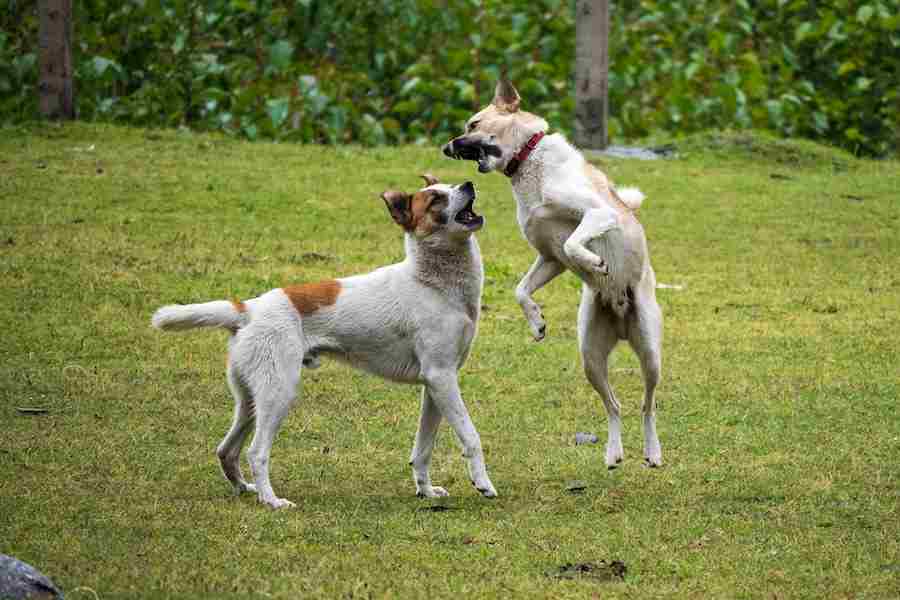Is your dog experiencing discomfort from an irritated anus? It’s essential to find effective ways to soothe their discomfort and promote their well-being. In this comprehensive guide, we will explore practical methods to alleviate your dog’s irritated anus and provide them with relief. From understanding the potential causes to implementing soothing remedies, we’ll cover everything you need to know. Discover how oatmeal baths, coconut oil, witch hazel, dietary adjustments, and regular grooming can help ease your dog’s discomfort and restore their happiness. Say goodbye to your dog’s irritated anus as we delve into the expert tips and remedies in this informative article.
How To Soothe Dog Irritated Anus?
Before delving into the methods of soothing a dog’s irritated anus, it’s crucial to understand the underlying causes. The following section will shed light on some common causes of anal irritation in dogs.
- Identify the Symptoms – Observe your dog for signs of anal irritation, such as excessive licking, scooting on the floor, redness, swelling, or discomfort when sitting. Identifying the symptoms will help you address the issue promptly.
- Consult with a Veterinarian – It’s important to consult with a veterinarian to determine the underlying cause of your dog’s anal irritation. The vet will conduct a thorough examination, discuss your dog’s medical history, and recommend appropriate treatment options.
- Maintain Good Hygiene – Keep the area around your dog’s anus clean to prevent further irritation. Gently clean the area with pet-friendly wipes or mild soaps specifically designed for dogs. Avoid using harsh chemicals or fragrances that could aggravate the irritation.
- Trim the Fur – Trim the fur around your dog’s anus to prevent fecal matter from sticking to the fur and causing additional irritation. Use blunt-edged scissors and be careful not to cut the skin.
- Provide a Balanced Diet – Ensure your dog’s diet is balanced and provides essential nutrients for healthy skin. Consult with your vet to determine if any dietary adjustments are necessary to address underlying allergies or sensitivities.
- Oatmeal Baths – Prepare a warm bath for your dog and add finely ground oatmeal to the water. Soak your dog in the oatmeal-infused water for about 10-15 minutes. Oatmeal has soothing properties that can alleviate itching and inflammation.
- Apply Soothing Topical Remedies – Consult with your veterinarian for suitable topical remedies to soothe your dog’s irritated anus. Options may include coconut oil, witch hazel, or medicated creams specifically formulated for dogs.
- Prevent Parasites – Regularly use flea and tick preventives to protect your dog from parasitic infestations. Parasites can contribute to anal irritation, so taking preventive measures is crucial.
- Address Underlying Health Conditions – If the anal irritation is a result of underlying health conditions such as allergies or gastrointestinal issues, work with your veterinarian to manage these conditions effectively. This may involve dietary changes, medications, or allergy treatments.
- Monitor Progress and Follow-Up – Keep an eye on your dog’s progress after implementing the recommended steps. If the irritation persists, worsens, or new symptoms arise, contact your veterinarian for a follow-up appointment.
Remember, every dog is unique, and the treatment plan may vary based on the underlying cause of the anal irritation. Working closely with your veterinarian will ensure the best possible care and relief for your furry friend.
Soothing A Dog’s Irritated Anus: Effective Remedies And Care
Now that we have explored the potential causes of a dog’s irritated anus, let’s delve into some effective remedies to provide relief for our beloved pets.
1. Oatmeal Baths: The Soothing Solution
Oatmeal baths can be highly beneficial for relieving itchiness and inflammation. Prepare a warm bath for your dog and add a cup or two of finely ground oatmeal to the water. Let your dog soak in the soothing bath for about 10-15 minutes, ensuring the affected area is exposed to the oatmeal-infused water. Pat your dog dry afterward to avoid further irritation.
2. Coconut Oil: Nature’s Remedy
Coconut oil possesses natural anti-inflammatory and antimicrobial properties, making it an excellent choice for soothing a dog’s irritated anus. Apply a small amount of coconut oil to a clean cotton ball or pad and gently dab it onto the affected area. The oil will provide relief and aid in healing irritated skin.
3. Witch Hazel: The Astringent Solution
Witch hazel is a natural astringent known for its soothing properties. Dilute witch hazel with an equal amount of water and apply it to the irritated area using a clean cloth or cotton pad. The witch hazel will help reduce inflammation and provide relief from discomfort.
4. Dietary Adjustments: A Balanced Approach
Incorporating dietary changes can contribute to resolving anal irritation in dogs. Consult with your veterinarian to identify any potential food allergens and make necessary adjustments to your dog’s diet. Providing a balanced and nutritious diet can support overall skin health and alleviate anal discomfort.
5. Regular Grooming: A Clean Solution
Maintaining proper grooming practices is essential for preventing and managing anal irritation. Regularly clean the area around your dog’s anus using pet-friendly wipes or mild soaps. Trim the fur around the anus to prevent fecal matter from sticking and causing irritation.
What Causes Itching Dog Buttocks?
An itchy dog butt can be caused by various factors. One common cause is problems with the anal glands. These small sacs located near the anus can become impacted or infected, leading to discomfort and itching. Another possible cause is allergies. Dogs can develop allergies to certain foods, environmental allergens, or grooming products, which can result in itchiness in their rear end.
Parasites can also contribute to an itchy dog butt. Fleas, ticks, and intestinal worms can cause irritation and itching in the anal area. Additionally, skin infections, such as bacterial or fungal infections, can lead to itchiness around the anus. Digestive issues, like diarrhea or gastrointestinal problems, may also result in irritation and itchiness.
Furthermore, poor hygiene practices can contribute to discomfort and itching in the anal region. It is important to maintain proper cleanliness by regularly cleaning the area around the dog’s anus. Trimmed fur around the anus can also help prevent fecal matter from accumulating and causing irritation.
If your dog is experiencing persistent itchiness, it is advisable to consult with a veterinarian. They can accurately diagnose the underlying cause and recommend appropriate treatment options to alleviate the itchiness and provide relief for your beloved pet.
Conclusion
Soothing a dog’s irritated anus requires a combination of understanding the underlying causes and implementing appropriate remedies. By identifying the source of discomfort and following the recommended techniques discussed in this article, you can help alleviate your dog’s irritation and provide them with the comfort they deserve. Remember to consult with a veterinarian for professional guidance and advice tailored to your dog’s specific needs. Together, we can ensure our furry companions lead happy and irritation-free lives.
FAQ’s
Q1: Can I use over-the-counter creams to soothe my dog’s irritated anus?
A1: It is best to avoid using over-the-counter creams or ointments without consulting a veterinarian. Some human products may contain ingredients that can be harmful to dogs. Always seek professional advice for safe and effective remedies.
Q2: How long does it take for anal irritation to heal in dogs?
A2: The healing time for anal irritation in dogs can vary depending on the underlying cause and the severity of the condition. With proper treatment and management, most cases of anal irritation can improve within a few days to a couple of weeks.
Q3: Can anal gland problems be prevented?
A3: While it’s not always possible to prevent anal gland problems, regular expression of the anal glands during grooming sessions can help reduce the risk of blockages or infections. Consult with a professional groomer or veterinarian for guidance on proper anal gland care.








